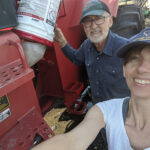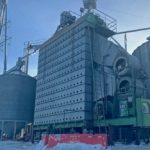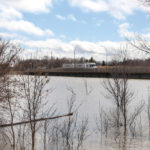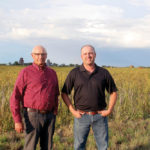
Tag Archives Environment
Letters: Time for new priorities

Group calls for climate-resilient ag in COVID-19 recovery
Farmers faced a ‘double whammy’ of extreme weather and the pandemic this year, according to the group Farmers for Climate Solutions

New solar panels grab light from above and below
Potential solution towards balance between crop growth and electricity generation capabilities

According to ag-minister Bibeau, carbon tax on grain drying insignificant
"It comes back to competitiveness and what makes sense and it seems in this industry and in this country right now we are just shooting ourselves in the foot..." – Warren McCutcheon

EU plans to halve pesticide use, expand organic farming
Weather school: How Earth manages its energy input
How land and water are arranged on Earth greatly affect its weather

‘Cautiously optimistic’ about flood prospect for Manitoba
Seasonally average weather should head off the worst of flooding along the Red River

Weather school: Why does it get warm?
A greenhouse is an inexact metaphor for how Earth absorbs and emits energy

Native prairie restoration becomes a family dream brought to life
Tilston-area farmers partner with watershed district to boost habitat and productivity

Wheat in Whitehorse: How climate change could open a new frontier
Will the Great White North become the Great Green North?


